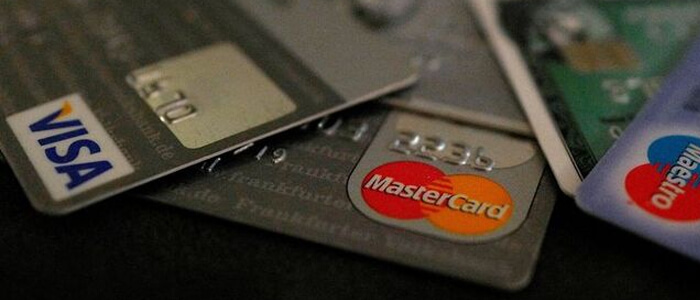New federal rule caps most credit card late fees at $8
Anúncios
A substantial transformation has occurred in the credit card industry with the implementation of a new rule by the Consumer Financial Protection Bureau (CFPB). Formalized on March 5, 2024, this rule imposes a maximum cap of $8 per occurrence for credit card late fees, marking a significant reduction from the previous average of $32. Aligned with broader efforts to address and mitigate what are commonly referred to as “junk fees,” this regulatory adjustment provides financial relief to a vast number of credit card users throughout the United States.
This decision is a pivotal component of an overarching financial protection initiative under the Biden administration, specifically targeting various categories of banking fees deemed excessively burdensome for consumers. The $8 capped fee serves as a safeguard to ensure equitable treatment and prevent disproportionately high penalties for late payments on credit card bills. As this rule takes effect, its implications are anticipated to not only reshape consumer experiences but also impact the operational paradigms of credit card issuers.
Anúncios
Overview of the New Federal Rule
The introduction of a new federal rule marks a noteworthy shift in credit card regulations, as it enforces a cap on late fees for payments, limiting the maximum amount to $8. This alteration is a proactive response to the ongoing efforts aimed at alleviating financial burdens on consumers, providing a more equitable framework for credit card users.

By reducing the permissible late fee, the rule aligns with broader initiatives focused on enhancing consumer protection and fostering fair financial practices. The capped amount of $8 ensures a more reasonable and proportionate penalty for late credit card payments, contributing to a more balanced and consumer-friendly financial landscape.
Anúncios
Implications for Credit Card Holders
For credit card holders, this rule translates into direct financial relief. The cap on late fees can substantially lower the expenses incurred from missed credit card payments, which previously could rise significantly higher than the new $8 limit. Credit card users stand to gain from reduced penalty costs, especially those who occasionally miss a payment deadline due to unforeseen circumstances.
Credit Card Companies’ Responsibilities
Credit card companies are now tasked with adhering to this updated regulation by adjusting their fee structures. Companies with over one million open accounts must comply with the $8 cap on late fees. This requires revising contractual agreements and updating billing systems to reflect the new maximum charges enforced by the regulation. Companies must ensure transparency and communicate these changes effectively to their customers.
Mechanics of the Late Fee Cap
The recent initiative from the Consumer Financial Protection Bureau signifies a crucial step in addressing credit card late fees. With immediate effect, this regulation sets a uniform maximum late fee at $8 for the majority of cases, a strategic move aimed at bringing clarity and protection to consumers navigating the credit card landscape.

This regulatory intervention by the Consumer Financial Protection Bureau is designed to elevate transparency and fairness within the credit card industry. The $8 cap acts as a protective measure, establishing a reasonable and standardized limit for credit card late fees. In doing so, it fosters a more equitable financial environment, enhancing consumer confidence and safeguards in credit transactions.
Calculation of the $8 Cap
The $8 cap on credit card late fees represents a significant reduction from the previous average of $32. This figure is grounded in a regulatory effort aimed at protecting consumers from excessive and disproportionally punitive charges that may accrue from late payments. The cap is systematically applied to the largest credit card issuers, specifically targeting those servicing over 1 million open accounts.
Exceptions to the Fee Cap
While the $8 late fee cap is extensive, there are certain circumstances where exceptions apply. Issuers may charge higher fees if they can demonstrate that the costs incurred from late payments justify a higher fee, but this must be within reasonable limits. Moreover, the rule allows for inflation adjustments, potentially altering the capped amount as economic conditions shift.
Impact on the Credit Card Industry
The recent federal regulation, enforcing a maximum late fee of $8, signifies a noteworthy reduction from the prior average of $32, ushering in substantial changes for the credit card industry. This measure is poised to have a considerable impact, reshaping the dynamics of how late fees are structured and reinforcing consumer protections within the credit card landscape.
Financial Implications for Credit Companies
Credit companies are poised to experience a reduction in revenue derived from late fees. Historically, these fees have been a substantial source of profit for large issuers, especially those with more than 1 million open accounts. The adjustment from an average fee of $32 to the new cap of $8 will likely necessitate a re-evaluation of revenue forecasts and profit models.
Changes to Credit Card Terms and Conditions
In response to the fee cap, credit card issuers may revise the terms and conditions of their credit agreements. These revisions could manifest in various ways, such as:
- Adjustments to Interest Rates: Potential increases in regular interest rates to offset the lost late fee revenue.
- Revision of Reward Programs: Possible scaling back of rewards to maintain profitability.
- Introduction of New Fees: Exploration of alternative fee structures to compensate for income loss.
Issuers will need to navigate regulatory compliance while ensuring their offerings remain competitive in the marketplace.
Consumer Protection and Legislation
A substantive paradigm shift in consumer finance policy is discernible through the recent enactment of a regulatory measure by the Consumer Financial Protection Bureau (CFPB). This directive, which caps late fees for credit cards at $8, signifies a departure from prior norms, underscoring a resolute commitment to safeguarding consumer rights and mitigating financial burdens.

The CFPB’s regulatory adjustment reflects a proactive approach to cultivating fairness, judiciously restricting late fees to a maximum of $8, thereby shielding consumers from disproportionate financial penalties and fostering an environment marked by equity and transparency in the domain of credit cards.
Related Consumer Rights
The CFPB’s ruling on credit card late fees builds upon the Credit Card Accountability Responsibility and Disclosure (CARD) Act of 2009, which introduced reforms to enhance transparency and protect users from certain credit card practices. Under this new rule, consumers are entitled to:
- Fairer late fee charges: Late fees cannot exceed $8 for credit card accounts, substantially lowering the typical charge.
- Protection from excessive penalties: The imposition of massive late fees has been a point of contention, as they often disproportionately affected individuals struggling financially.
Future Legal Considerations
Moving forward, this legislation may establish a precedent for evaluating other financial penalties and fees. Legal analysts predict potential areas of impact:
- Review of similar fees: Financial institutions may see a closer examination of other fees to ensure they are not disproportionately large compared to the costs they cover.
- Adaptation by credit card issuers: Those with more than 1 million open accounts will need to adjust fee structures while monitoring for compliance with the new cap.
Impact of the measure on the lives of debtors
In conclusion, the recent implementation of the new federal rule by the Consumer Financial Protection Bureau (CFPB) represents a historic shift in the credit card industry. Imposing a maximum late fee of $8, a substantial reduction from the previous average of $32, not only provides immediate financial relief to credit card users, but also aligns with broader efforts to address the perceived “unwanted fees”. This regulatory adjustment is a critical component of the comprehensive financial protection initiative under the Biden administration, targeting excessive bank fees to ease consumer burdens.





